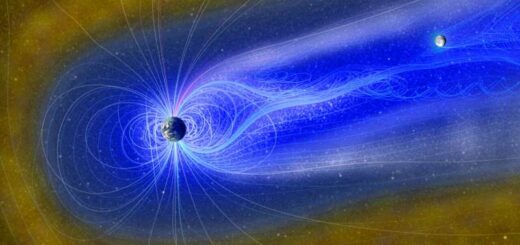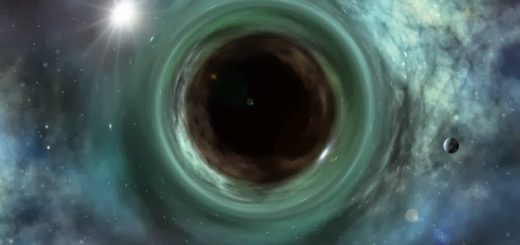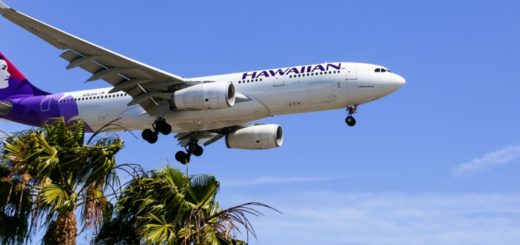UFO Interest In The U.K. Is Dead, Or Soon Might Be, Says Leading British Paranormal Organization

The question of whether little green men are visiting Earth may be an idea whose time has come and gone, according to a leading British educational and research organization.
For the past 31 years, the Association for the Scientific Study of Anomalous Phenomena (ASSAP), has been dedicated to finding explanations for a variety of subjects considered fringe science — ghostly hauntings, psychic phenomena and UFOs, among other things, even accounts of fish spontaneously falling from the sky.
ASSAP is a registered United Kingdom charity formed in 1981 by researchers, with more than 300 members.
The association approaches investigations “without preconceived ideas of what we will find. We are interested neither in starting new philosophies nor in spreading unyielding skepticism. We simply want the truth, whatever it may turn out to be,” according to the group’s website.
UFOs were once a central part of the ASSAP’s mission. But in recent years, members have noted a decline in the number of UFO research groups in the U.K.
According to the ASSAP chairman, Dave Wood, the lack of overwhelming evidence of alien visitation to Earth may signal the end of UFOlogy, a generic term widely used to refer to the study of UFOs.
“The trends all seem to point in the direction of groups that have been into this are beginning to close down because of the reduction in the number of reports,” Wood told The Huffington Post. “The UFO reports that remain are much more prosaic in nature. Large numbers of them, for example, are of Chinese lanterns and things like that which are very easily explainable.”
To determine if UFO studies have a future in the U.K., ASSAP will spearhead a conference, dubbed “Seriously Unidentified,” at the University of Worcester on Nov. 17.
“We’ve called for this conference to try and establish what the mood is in the community, although some of the press reports so far have presented it as a bit of a fait accompli — UFOlogy is dead,” said Wood.
In the United States, the Air Force ended its long study of UFOs — Project Blue Book — in 1969, concluding that 95 percent of UFO sightings are misidentifications of things like balloons, clouds, conventional aircraft, birds, planets and satellites, with a residue of about 4 to 5 percent remaining as unknowns or unidentified.
That doesn’t mean those unknowns are visitors from another planet, but without some major new development in the entire UFO field — including a mass eyewitness encounter with an object that lands, producing beings that say, “Take us to your leader” — is there really any reason to continue being interested in flying saucers?
“It’s very much an open verdict as far as I’m concerned,” said Wood. “There’s definitely the evidence which points to a major decline in sightings and participation, but I’m very open-minded to the idea that there actually could be a further renaissance around the corner.”
Explaining the unexplained in images
Wood speculates that, at least in the U.K., there’s a possibility that within 10 years, UFOs may become a dead issue.
“During the 80s, about half of sightings referred to ASSAP were UFOlogical in nature. It’s now very few, whereas numbers of haunting phenomena have massively increased in the last 10 years, while the number of UFO groups have dropped off from over 100 to about 30,” Wood added.
Speakers at ASSAP’s upcoming event represent a range of perspectives on the UFO subject, including:
Ian Ridpath, editor of the Oxford Dictionary of Astronomy, and noted UFO skeptic.
The Rev. Lionel Fanthorpe, ordained Anglican priest, martial arts instructor and ASSAP president.
Paul Vella, professional computer forensics and information technology (IT) specialist.
Cal Cooper, with a BSc (Hons) degree, involved with research in psychology and parapsychology at the University of Northampton.
ASSAP hopes that its “Seriously Unidentified” summit will add to the ongoing UFO debate and “will play a part in defining the future direction of British UFOlogy.”
At the beginning of 2012, HuffPost reported how the new year saw large numbers of UFO reports in the U.S. and abroad.
And while UFO sightings are possibly declining in the U.K., a recent report by Open Minds suggests UFOs appear to be on the increase elsewhere in the world, including Finland, Argentina and Australia.
The fact that no truly irrefutable evidence has yet to be revealed — an actual ship or piece of one, an actual alien body or piece of one — after more than 60 years of claims and reports, is why the future of UFOlogy will be seriously discussed at the upcoming ASSAP conference.
One of ASSAP’s founding members is Jenny Randles, author of over 30 books on UFOs. She’s critical of how the media in general has reported UFOs over many decades, as well as how many people will believe anything they read or hear about flying saucers.
“UFOlogy is no more dead than it ever was,” she said in an email to HuffPost. “It has, though, matured somewhat. There have always been thousands of people happily blaming the cover-up, the government, unseen alien forces, whatever, for us not knowing the truth and waiting for this to be handed over to them.
“A galactic cop-out, so to speak. Perhaps some of those have finally got fed up and gone away and, if so, then we are all the better for it.”
Watch this classic 1958 portion of “The Mike Wallace Interview”
Part of the problem is that it seems like most believers have more faith than evidence in the idea that aliens are coming and going, and we can’t do anything about it.
“My view is the idea of UFOs as craft from other worlds is a modern myth largely created and sustained by popular culture and the media,” said David Clarke of Sheffield Hallam University and the U.K.’s National Archives UFO adviser.
“As a folklorist, I’m interested in why large numbers of people continue to believe in something despite the lack of evidence,” Clarke told HuffPost. “The bottom line is that UFO equals unidentified flying object. Since the advent of the Internet, very few remain unidentified.”
Clarke, author of the recent book, “The UFO Files,” led the campaign for disclosure of previously classified UFO files in the U.K.
On the question of whether UFOlogy is dead or alive, he suggests ASSAP will still be wondering that 10 years from now.
“The question ‘do aliens exist’ has actually nothing to do with ‘do UFOs exist’,” Clarke said. “Of course UFOs exist, in that people see unidentified things in the sky. The bottom line is that UFOs = aliens is a dead end.”



 Creators of mankind
Creators of mankind Description of “Tall white aliens”
Description of “Tall white aliens” Where they came from?
Where they came from? About hostile civilizations
About hostile civilizations The war for the Earth
The war for the Earth “Tall white aliens” about eternal life
“Tall white aliens” about eternal life Video: “Nordic aliens”
Video: “Nordic aliens” Aliens
Aliens Alien encounters
Alien encounters The aliens base
The aliens base UFO
UFO Technology UFO
Technology UFO Underground civilization
Underground civilization Ancient alien artifacts
Ancient alien artifacts Military and UFO
Military and UFO Mysteries and hypotheses
Mysteries and hypotheses Scientific facts
Scientific facts


















